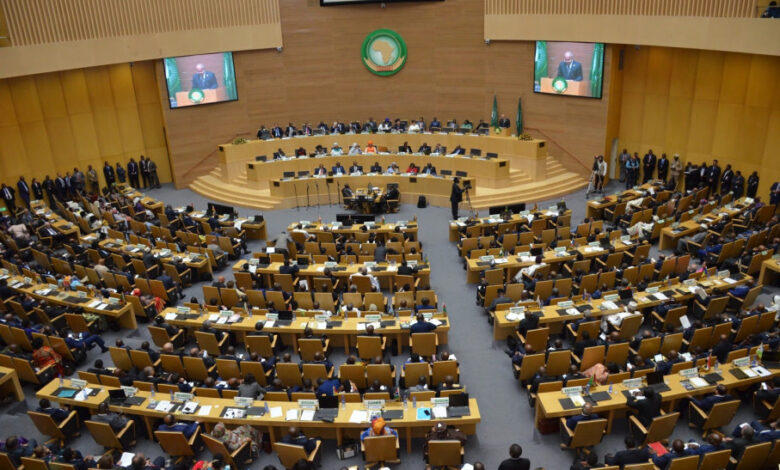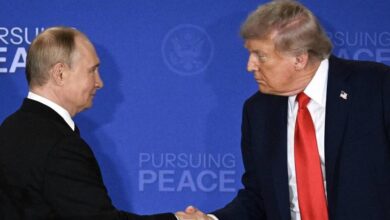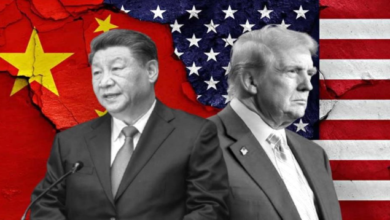The Moroccan Presidency of the African Union Peace and Security Council: A Strong Commitment to Peace and Stability in Africa

Morocco’s Presidency of the African Union’s Peace and Security Council: A Commitment to Stability in Africa
The presidency of Morocco at the African Union’s (AU) Peace and Security Council (PSC) in March served as a pivotal opportunity to reaffirm the Kingdom’s commitment to peace and stability across the African continent. This month was filled with important discussions on critical themes, including Artificial Intelligence (AI) and its impact on peace and security, as well as climate change.
Under Moroccan leadership, the PSC held informal consultations with countries undergoing political transitions, namely Mali, Burkina Faso, Niger, Guinea, Sudan, and Gabon. These discussions provided the concerned nations with an opportunity to review the progress made in their transition processes and to reaffirm their commitment to fully reintegrating into the AU.
The Moroccan presidency also highlighted the visionary leadership of His Majesty King Mohammed VI, who has consistently advocated for an Africa capable of shaping its own destiny. One of the significant moments this month was the ministerial meeting focused on AI and its implications for peace and security. During this meeting, Morocco’s Minister of Foreign Affairs, African Cooperation, and Moroccans Abroad, Mr. Nasser Bourita, emphasized the need for Africa to emerge with strong and united leadership in order to leverage AI as a tool for development, peace, and security on the continent.
Another noteworthy development was the focus on the security situation in Sudan, which included several consultations on the evolving circumstances in the country. Additionally, two sessions were organized to address the situation in South Sudan.
In response to the multitude of security challenges facing the continent, the Moroccan presidency also held several thematic sessions addressing crucial topics such as "Climate Change: Challenges Related to Peace and Security in Africa," "Deradicalization as a Tool Against Violent Extremism," and "Discussion on the Women, Peace, and Security Agenda in Africa." These discussions laid the groundwork for concrete pathways aimed at enhancing the continent’s stability.
Furthermore, Morocco organized an introductory program for new PSC members, which took place from March 22 to March 28, 2025, in Arusha. This program established a roadmap for improving the effectiveness of the AU-PSC.
As President of the PSC for March, the Kingdom of Morocco also played a central role in adopting the Common African Position on the 2025 Review of the United Nations Architecture for Peacebuilding.
The outcomes of Morocco’s presidency of the PSC for March 2025 underscore the Kingdom’s ongoing commitment to a concerted and pragmatic African approach to addressing the continent’s security challenges.





